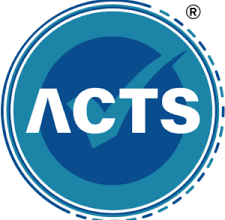In the realm of academic community, writing offers as a fundamental tool for interaction,
exploration, and dissemination of expertise. In this thorough guide, we'll dig into the best
methods for academic writing, supplying informative ideas and methods to help you develop
your skills and produce impactful scholarly Work.
Comprehending Academic Writing
Before delving into ideal methods, it's vital to comprehend the significance of academic
writing. Unlike casual or innovative writing, academic writing is identified by its formal tone,
organized method, and focus on clarity, accuracy, and evidence-based argumentation. Its
main objective is to add to the body of expertise within a particular area or technique,
fostering intellectual discussion and advancing understanding.
Key Aspects of Academic writing
Clear and Concise Language:
Academic writing demands clearness and conciseness. Avoid obscurity and verbosity by
utilizing accurate language and straightforward expressions. Make sure that your ideas exist
logically and coherently, allowing readers to follow your arguments easily.
Important Assuming:
Take part in important evaluation and analysis of existing literary works and research
searchings for. Develop your own perspective by manufacturing diverse resources and
supplying informative interpretations. Difficulty assumptions, recognize voids in
understanding, and propose ingenious solutions or viewpoints. Looking for reliable essay help online? Read more about the recommended writing services and find the perfect assistance for your academic needs.
Evidence-Based Argumentation:
Support your cases and arguments with legitimate proof from reputable sources such as
academic short articles, publications, and empirical data. Acknowledge opposing viewpoints
and counterarguments, but provide reasoned defenses supported by proof.
Correct Referencing and Citation:
Academic stability is critical. Precisely cite all sources utilized in your writing to avoid
plagiarism and promote academic standards. Familiarize on your own with the suitable
citation style (e.g., APA, MLA, Chicago) needed by your self-control and stick to its
standards carefully.
Structural Company:
Arrange your writing right into clear, distinct areas such as intro, literary works testimonial,
methodology, results, discussion, and Final Thought. Each area ought to serve a distinct
purpose and contribute to the general comprehensibility and flow of your paper.
Best Practices for Academic writing
Begin Early and Strategy Ahead:
Start your writing process well ahead of time to permit sufficient time for research,
composing, revision, and editing. Create a reasonable timeline and set achievable
milestones to remain on track and decrease final anxiety.
Thorough research:
Conduct detailed research to gather relevant literature and empirical data referring to your
subject. Use numerous sources such as academic journals, publications, meeting
procedures, and trusted websites to ensure an all-round understanding of the subject.
Produce an Outline:
Lay out the structure of your paper before diving into writing. A clear overview offers as a
roadmap, guiding the flow of your disagreements and ensuring comprehensibility and
logical development. Consist of crucial points, subtopics, and supporting proof in your
outline.
Preparing and Changing:
write an initial draft of your paper, focusing on sharing your ideas without stressing over
perfection. Once the draft is full, Revise and fine-tune your writing iteratively. Pay attention
to clarity, comprehensibility, grammar, punctuation, and format.
Seek Responses:
Get comments from peers, advisors, or professors to acquire useful understandings and
viewpoints on your writing. Constructive criticism can aid recognize locations for
improvement and enhance the general high quality of your Work. Be open to feedback and
ready to Revise accordingly.
Polish Your writing:
Pay thorough attention to detail throughout the editing and enhancing and proofreading
phases. Look for punctuation errors, grammatical blunders, punctuation inconsistencies,
and formatting problems. Make sure adherence to the suggested citation design and
confirm the precision of all references.
Remain Organized and Manage Time Successfully:
Preserve a structured strategy to writing by creating a helpful workplace, establishing
sensible objectives, and handling your time effectively. Focus on jobs, remove interruptions,
and allocate enough time for writing, research, and modification.
Exercise Frequently:
Like any skill, academic writing improves with method. Devote time to writing regularly,
whether it's with coursework, research projects, or personal ventures. Obstacle on your own
to check out new topics, try out different writing designs, and improve your strategies.
Final Thought:
Grasping academic writing is a journey that requires dedication, determination, and
constant refinement of skills. By adhering to the most effective methods outlined in this
guide, you can enhance your writing efficiency and create scholarly Work that is rigorous,
compelling, and impactful. Bear in mind to come close to writing as a procedure of
expedition and exploration, embracing comments and gaining from each experience. With
persistence and practice, you'll become adept at browsing the complexities of academic
discourse and making meaningful contributions to your field.




